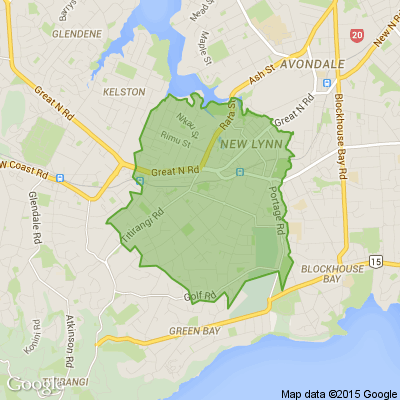Don't try this at home: Why Lemons Aren't a Magic Potion for Flawless Skin
The charm of natural remedies is undeniable, especially when it comes to skincare. From honey masks to coffee scrubs, DIY concoctions flood social media, promising quick fixes for everything from wrinkles to hyperpigmentation. But before you squeeze that lemon onto your face based on the latest TikTok "hack," hold on! As a pharmacist who has dedicated years to formulating gentle yet effective skincare, I'm here to burst the citrus bubble and explain why lemons are a bad idea for treating skin spots.
Lemon on your face is not such a good idea.
The Acidic Truth, what you don’t know can harm you
Let's start with the science. Lemons are undeniably rich in vitamin C, an antioxidant praised for its brightening properties. However, the key ingredient responsible for that "magic" is citric acid, a potent alpha hydroxy acid (AHA). While AHAs can indeed exfoliate dead skin cells, revealing a seemingly brighter complexion, the harsh reality is that lemon juice is far too acidic for your delicate facial skin.
Imagine this: your skin's natural pH sits around a healthy 5.5, slightly acidic but leaning towards neutral. Lemon juice, on the other hand, boasts a pH of 2-3, making it incredibly acidic and comparable to vinegar! Applying this directly to your face disrupts your skin's natural barrier, potentially leading to:
Inflammation and irritation: Redness, burning, and stinging are common reactions, especially for sensitive skin.
Increased sun sensitivity: AHAs make your skin more susceptible to sun damage, potentially worsening hyperpigmentation instead of lightening it.
Uneven skin tone: Over-exfoliation, inflammation, and increased sun sensitivity can lead to patchy, uneven skin tone, the opposite of the desired effect. Yup! It can make things worse!
pH2 is 1000 times more acidic than pH5, it’s a logarithmic scale
Beyond the Burn: The Long-Term Damage
The harm doesn't stop at immediate reactions. Frequent use of lemon juice can weaken your skin's barrier, making it more vulnerable to environmental damage, infections, and premature aging. It's essentially trading short-term perceived brightness for long-term skin woes.
The Temptation of the Algorithm: Why We Fall for the "Hacks"
So, why do these questionable practices gain traction online? The answer lies in a complex mix of factors:
Appeal to natural remedies: The belief that "natural" equals safe and effective is very strong.
Influencer trust: We often see flawless, filtered complexions on our screens, leading us to believe the methods used are foolproof, regardless of their potential harm.
Cherry-picking results: Social media thrives on showcasing successes, rarely highlighting negative experiences or potential dangers.
The Power of Informed Choices: Seek Expertise, Not Likes
It's important to remember that quick fixes rarely deliver lasting results, and especially when it comes to your skin, caution is paramount. Be weary before trying any DIY trend, especially on your face!
Remember, your skin is your largest organ, deserving of care and respect. Don't fall victim to online trends that prioritize likes over lasting results. Choose the informed path, treat your skin with gentleness and respect, and use lemons for lemonade - the healthy way, not on your face.
Use your Lemons wisely, drink them!
Worst Xmas ever?
There's a a lot of planning that goes into Christmas day and sometimes things just don't go to plan. But it can be a good thing - a family mishap or hilarious memory that you can laugh about in Christmases to come.
Whether you burnt the dinner or were stranded at an airport...
Share your Christmas mishaps below!

Success isn’t just about numbers; it’s about making the right decisions at the right time.
At Moore Markhams, we work alongside you to understand your goals and help you navigate challenges, from tax compliance to business strategy.
As part of a global network, we provide local expertise backed by international connections, so you’re supported every step of the way.
Discover how Moore Markhams Auckland and our nationwide team can help your business thrive.

⚠️ DOGS DIE IN HOT CARS. If you love them, don't leave them. ⚠️
It's a message we share time and time again, and this year, we're calling on you to help us spread that message further.
Did you know that calls to SPCA about dogs left inside hot cars made up a whopping 11% of all welfare calls last summer? This is a completely preventable issue, and one which is causing hundreds of dogs (often loved pets) to suffer.
Here are some quick facts to share with the dog owners in your life:
👉 The temperature inside a car can heat to over 50°C in less than 15 minutes.
👉 Parking in the shade and cracking windows does little to help on a warm day. Dogs rely on panting to keep cool, which they can't do in a hot car.
👉 This puts dogs at a high risk of heatstroke - a serious condition for dogs, with a mortality rate between 39%-50%.
👉 It is an offence under the Animal Welfare Act to leave a dog in a hot vehicle if they are showing signs of heat stress. You can be fined, and prosecuted.
SPCA has created downloadable resources to help you spread the message even further. Posters, a flyer, and a social media tile can be downloaded from our website here: www.spca.nz...
We encourage you to use these - and ask your local businesses to display the posters if they can. Flyers can be kept in your car and handed out as needed.
This is a community problem, and one we cannot solve alone. Help us to prevent more tragedies this summer by sharing this post.
On behalf of the animals - thank you ❤️








 Loading…
Loading…